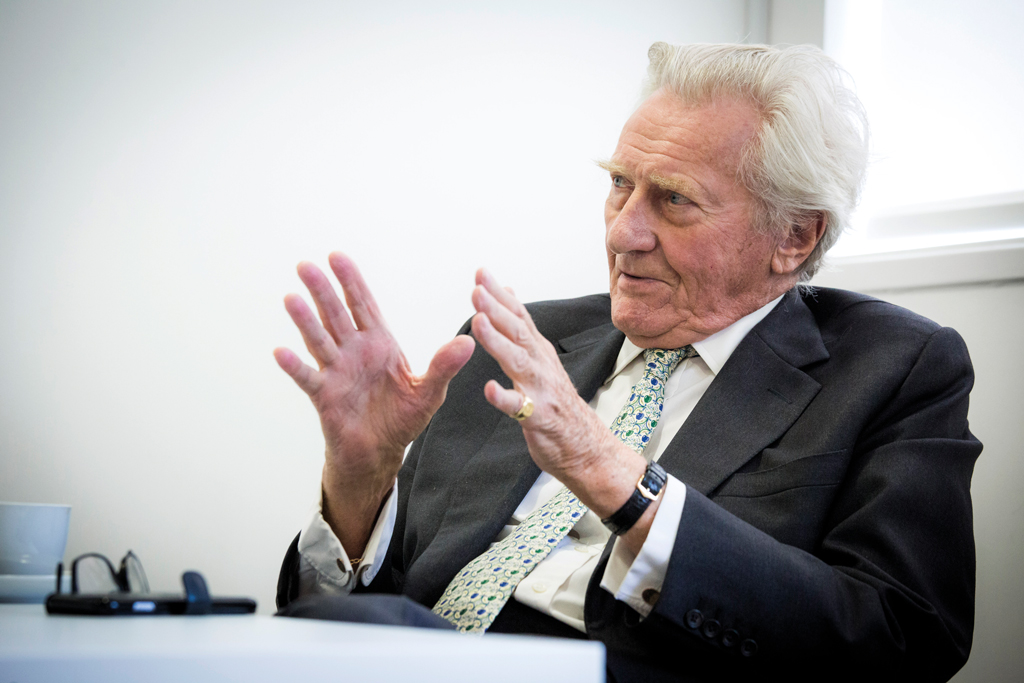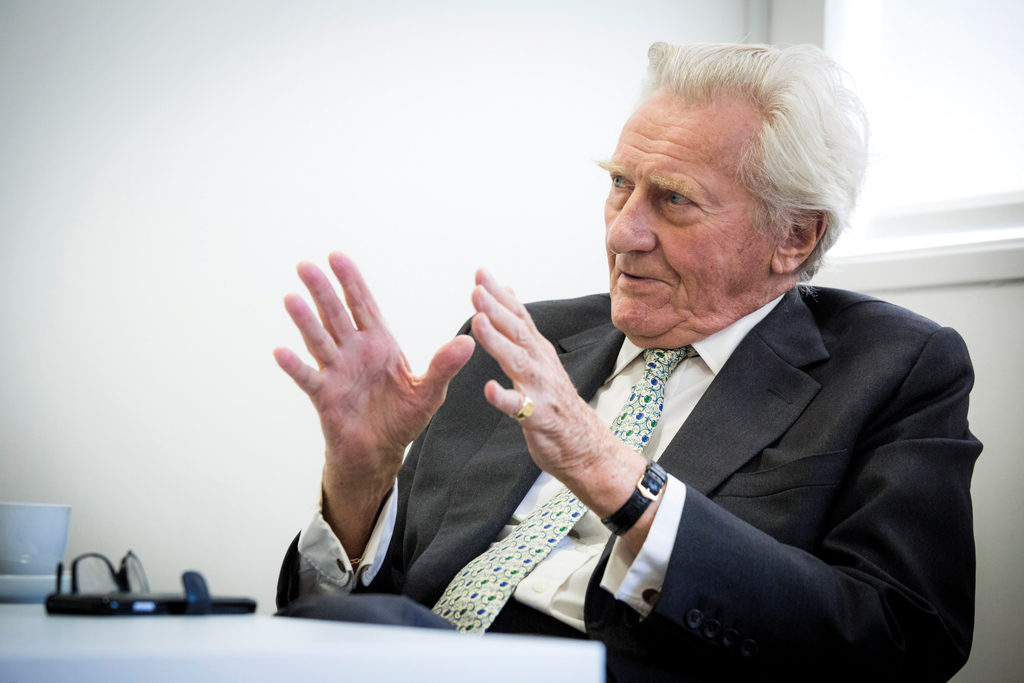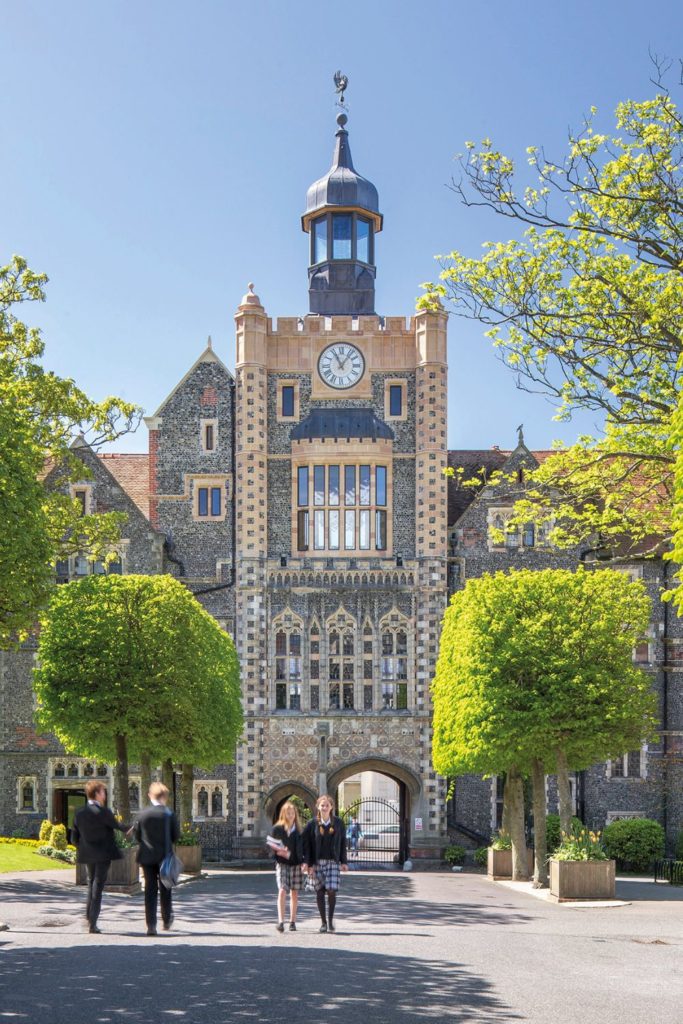How Independent Schools Support State Schools
By
6 years ago

A Vital Collaboration
Lord Heseltine applauds the work of independent schools in supporting state schools, but believes that there is a role for dynamic local government

Life is full of cross currents, streams of interest and activity that flow and counter flow through our jobs and leisure, creating patterns of bewildering complexity. I was educated in the private sector. My younger years were spent at three preparatory schools; two terms at Mourne Grange in Northern Ireland, where my father was stationed in 1940, an even briefer time at a school in South Wales (from which I ran away only to be picked up by the headmaster) and then happy years at Broughton Hall, a magnificent Jacobean manor. Five years at Shrewsbury, one of our country’s distinguished schools, followed, and then Oxford.
There was nothing at those institutions to prepare me for the economic and social challenges of urban deprivation that were to feature so prominently in my political career. It was, of course, impossible to grow up in South Wales without an awareness that there was another world of which I was not a part. At Shrewsbury I have a faint memory of a visit to what, I think, was called the ‘Mission to Liverpool’.
I was fortunate to have been born, brought up and educated in a background of privilege of which the British public school system was a central component. A free society enables citizens to exercise choice over how to live their lives, benefit their children and spend their money. In choosing to spend more on private education or health, in addition to the sums they pay in tax, people not only save the Exchequer billions of pounds a year but they provide comparative standards against which the public sector can properly be judged.
This week I reread a remarkable speech by Sir Michael Wilshaw to the Independent Headmasters’ and Headmistresses’ Conference in 2013. Sir Michael was at the time Her Majesty’s Chief Inspector of Schools, a post for which he was uniquely well qualified. Hackney Downs School was a disastrous example of state education and was rightly closed down in 1995. Wilshaw started the Mossbourne Academy on the same site, in the same buildings within, obviously, the same catchment. It became an outstanding school by any standards.
His simple question to those headteachers was to ask what obligation they felt for the failing state schools often just down the road. He reminded them that many of their schools were founded to provide education for the poor, that they are classified as charities and part of a wider community with the obligation that that implies.
The speech was controversial. Some schools were able to point out how they were already involved in projects benefitting the state sector but there was both silence and even hostility.
How much to be welcomed, therefore, a publication for the Independent Schools Council called Celebrating Partnerships, published in November 2018. The schools’ Minister responsible sets out and endorses the scale of partnership work now between the private and public education systems. There has been much progress but it is important that both government and the private sector recognise how much more could be done.
I am a strong advocate of devolving power to directly elected mayors throughout our metropolitan and county authorities. Top of their agenda should be the blight of our failing schools and the postcode lottery to which they contribute. Our failure to ensure good education for all our children and to equip them with the skills relevant to today’s place of work should not be tolerated.
Effective local government is about the creation of communities, building opportunities across those communities and recognising obligations towards those communities. Dynamic local leadership can unleash the human endeavour that enriches lives far beyond the narrow self-interest of tiny groups. In building tomorrow’s world, the role of our public schools in helping local leaders to bring the standards they achieve to those failing state schools cannot be overstated.

Lord Heseltine, former Deputy Prime Minister, 86, holds a long-term commitment to fostering economic growth. Publications include No Stone Unturned in Pursuit of Growth, reviewing the way the UK public and private sectors work together. He is founder and chairman of the media company, Haymarket Group, a passionate gardener and VP of the RHS. He still works for the common good. He published Empowering English Cities’ in July 2019, calling for city mayors to take responsibility for the construction of affordable housing, school performance and employment training.



